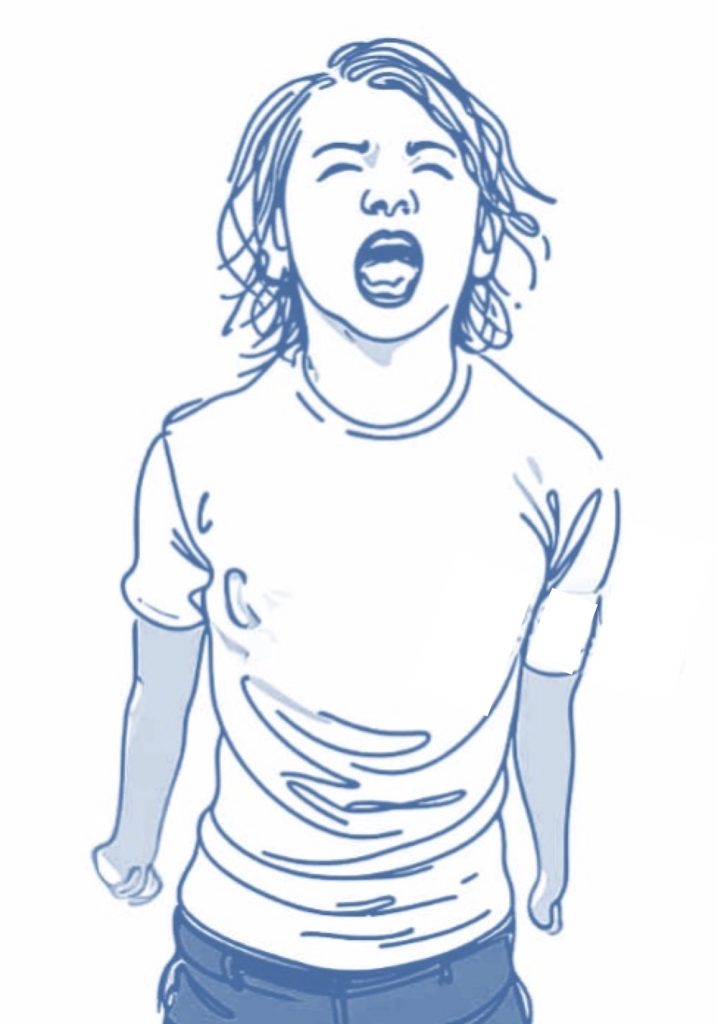Home / Oppositional Defiant Disorder
Oppositional Defiant Disorder
Oppositional Defiant Disorder is common, serious and treatable. Learn more about its underlying causes and explore strategies for managing and improving outcomes for children affected by this condition.
What is Oppositional Defiant Disorder?

Oppositional defiant disorder (ODD) is a common, serious, and treatable mental health condition that affects children and teenagers under the age of 18. Children and teens who have oppositional defiant disorder may be unusually angry or irritable, argue with or defy authority figures, or do things to deliberately annoy people. For example, they may frequently throw tantrums, argue with parents or teachers, or refuse to do what they are asked.
Oppositional disorder is fairly common. Scientists believe that about 3-5% (and maybe as many as 16%) of children and teenagers have oppositional defiant disorder. Oppositional defiant disorder occurs in children of both genders, but it is more common in boys.
Symptoms of oppositional defiant disorder can emerge at any point in childhood. However, it is most likely to emerge before the age of 8.
Some children with oppositional defiant disorder also have callous-unemotional traits, or CU traits. Children with these traits show less guilt, remorse, and empathy than other children. They may seem cold and unaffectionate and may not seem to care when others are upset or hurt. Mental health providers sometimes refer to these traits as “limited prosocial emotions.”
Learn the Signs of Oppositional Defiant Disorder
A sign is an objective, observable behavior or trait that can be recognized by other people. Signs of oppositional defiant disorder include:
- Losing temper
- Being touchy or easily annoyed
- Arguing with adults
- Defying or refusing to go along with adults’ requests or rules
- Doing things to deliberately annoy people
- Being spiteful or wanting to “get even” when upset
Signs of callous-unemotional traits (or limited prosocial emotions) include:
- Not showing remorse or guilt after doing something wrong
- Callousness and lack of empathy
- Not caring about performance in school
- Not experiencing or expressing emotions like fear, sadness, or love
What Causes Oppositional Defiant Disorder?
The causes of oppositional defiant disorder are complex. Many scientists now believe oppositional defiant disorder is a neurodevelopmental disorder. A neurodevelopmental disorder emerges when the brain develops differently than it does in typical children, causing persistent problems with a child’s thinking, emotions, and behavior.
Like other neurodevelopmental disorders, oppositional defiant disorder results from a combination of both genetic and environmental factors (“nature” and “nurture”).

Genetic Risk Factors
Genetic factors account for about half (50%) of the risk that a child will develop oppositional defiant disorder. This means a child is more likely to develop oppositional defiant disorder if they have one or more biological relatives who also had oppositional defiant disorder (or another disorder of aggression).
There is no “oppositional defiant disorder gene.” Many thousands of genes affect human brain development. Children with oppositional defiant disorder may carry an unusually high number of genetic variants that increase their risk of developing the disorder. Some of these genes may affect the way the child responds to specific environmental factors.

Environmental Risk Factors
Some environmental risk factors for oppositional defiant disorder affect how a child’s brain develops in the uterus. These prenatal risk factors include:
- Maternal smoking
- High levels of maternal stress
- Exposure to medications like acetaminophen
Some environmental risk factors affect how the brain develops during childhood, or affect how a child learns to behave. They include:
- Poverty or low socio-economic status
- Harsh or coercive parenting
- Witnessing violence in the household
- Exposure to delinquent peers (in adolescence)
- Low reading ability (assess your child’s reading level)
Risk factor or cause?
A risk factor is not the same as a cause. Some children may have environmental risk factors for oppositional defiant disorder but not develop the disorder. Some children with oppositional defiant disorder do not have any environmental risk factors.
It is important to understand this distinction because parents are often still blamed for causing their child’s oppositional defiant disorder. This is very similar to the way other neurodevelopmental disorders like autism and schizophrenia were blamed on parents (especially mothers) in the past. Mothers of children with autism were once called “refrigerator mothers.” Mothers of children with schizophrenia were once called “schizophrenogenic mothers.”
We now know these disorders are not caused by bad parenting. The causes of these disorders are complex and influenced by genetics. At the same time, it is important to recognize that parents can play an important role in helping children improve. Therapies in which parents are taught specific techniques to help their children are essential for treating and preventing oppositional defiant disorder.
How is Oppositional Defiant Disorder Diagnosed?
If you are concerned your child may have oppositional defiant disorder, ask your child’s doctor, school nurse, or social worker for a referral to a child psychologist or child psychiatrist. These are experts in diagnosing disorders such as oppositional defiant disorder. They will try to make sure that the child’s behavior is not just a reaction to a major life event (for example, a move or a new sibling), but indicate a real disorder. They will also screen your child for other mental health conditions. Mental health conditions that are common in children who also have oppositional defiant disorder include attentional deficit-hyperactivity disorder (ADHD), anxiety disorders, and conduct disorder (CD).
Sometimes mental health professionals avoid giving a child a diagnosis of oppositional defiant disorder because they are worried parents will be unhappy about the diagnosis. But receiving a correct diagnosis is important for selecting the best treatment.
You can complete our screening tools to assess if your child may be at risk for oppositional defiant disorder and/or callous-unemotional traits.
If you are having trouble finding a psychologist or psychiatrist, please see our provider list.
How is Oppositional Defiant Disorder Treated?
Oppositional defiant disorder is treatable. This means that there are therapies and medications that can reduce symptoms of oppositional defiant disorder. In many cases, even a short course of treatment improves a child’s symptoms so much that they no longer qualify for a diagnosis of oppositional defiant disorder. Treatment can even prevent children with mild symptoms from developing oppositional defiant disorder. Treatment for oppositional defiant disorder is usually more effective the younger the child is when treatment begins. Without treatment, children with oppositional defiant disorder are at high risk for developing conduct disorder and other serious mental health disorders.
Family focused therapies
The most effective forms of treatment and prevention for oppositional defiant disorder are family-focused therapies. These are forms of behavior therapy in which parents work directly with a clinician who trains them to use special approaches to manage and improve their child’s behavior at home. These therapies include:
- Parent Child Interaction Training (PCIT)
- Parent Management Training (PMT)
- Multi-Systemic Therapy (MST)
- Family Check-Up (FCU)
Forms of psychotherapy in which the clinician works directly with the child are not as effective as family-focused therapies in treating oppositional defiant disorder.
Medication
No medications have been specifically created to treat oppositional defiant disorder. Psychostimulant medications that were developed to treat attention-deficit hyperactivity disorder may also help some children with oppositional defiant disorder. However, family-focused therapy should always be the first line of treatment.
References
For more information about oppositional defiant disorder, please see these references:
- Hawes et al. (2023). Oppositional Defiant Disorder.
- Child Mind Institute. (2023). What is Oppositional Defiant Disorder?
- American Psychiatric Association. (2024). What are Disruptive, Impulse Control and Conduct Disorders?